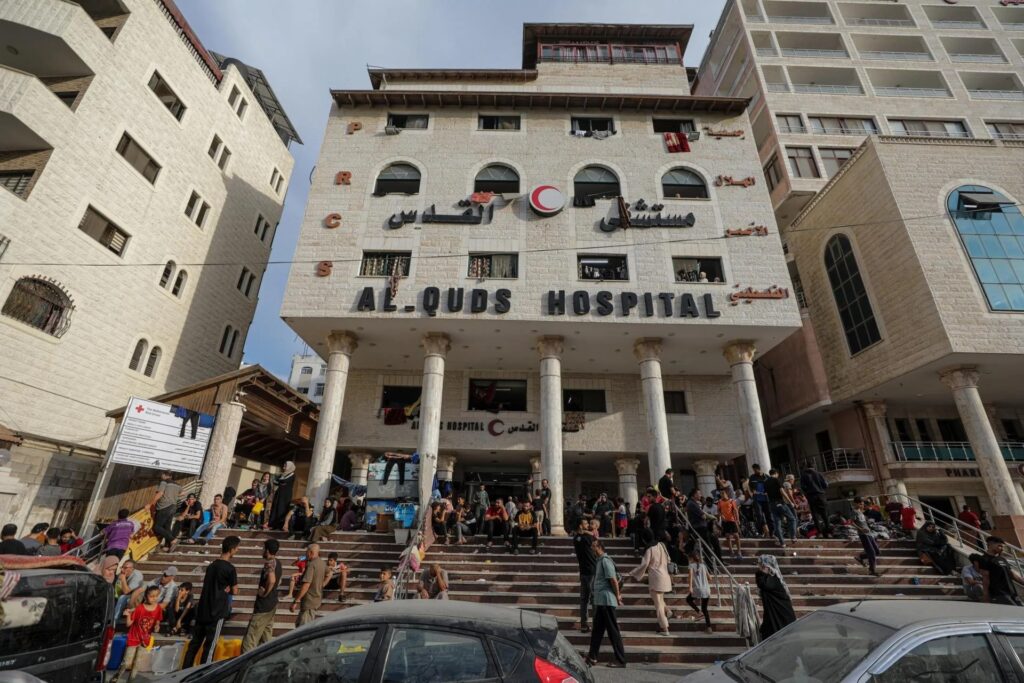Israeli Military’s Siege of Gaza’s Al Quds Hospital Threatens Civilians and Medical Neutrality
The Israeli military’s encirclement of the Palestinian Red Crescent’s Al Quds Hospital in Gaza raises urgent questions about protecting medical neutrality amid escalating conflict.

In the heart of Gaza, the Al Quds Hospital—a critical medical facility run by the Palestinian Red Crescent—is currently under siege by Israeli military forces. Stationed firmly at the hospital’s southern gate in the Tal al Hawa neighborhood, these troops have effectively trapped patients, medical staff, and civilians inside, refusing any ingress or egress. This deliberate containment sparks grave concerns about humanitarian law and the protection of medical neutrality during wartime.
How can essential healthcare survive when frontline tanks surround a hospital? The Israelis’ presence in Tal al Hawa coincides with intensified ground operations advancing from the south, placing hospitals not as sanctuaries but as volatile zones of conflict. One neighboring field hospital, established by Jordanian forces cooperating with Israel, was evacuated this week under military direction—yet no similar assurances protect other critical centers like Al Quds.
Is Washington Turning a Blind Eye to Humanitarian Rights Violations?
The Palestinian Red Crescent warns that patients and medical personnel face extreme danger amid this siege. Particularly alarming is the incapacitation of Al Quds’ oxygen station due to an attack; now reliant on limited oxygen cylinders set to last just three days, lives hang precariously in balance. This reality begs Washington: how long will our government overlook operations that jeopardize innocent civilians in a volatile region where America’s security interests demand stability?
This crisis sits at the intersection of national sovereignty and international norms that America champions. While Israel has every right to defend its borders and citizens against hostile actors operating from Gaza, encircling a hospital runs counter to fundamental principles protecting medicine from becoming collateral damage or a weaponized zone.
What Are the Consequences for America’s National Security?
Beyond humanitarian concerns, such tactics risk fueling anti-American sentiment by association, empowering extremist narratives that threaten regional peace—and by extension, American interests abroad and at home. A strong America First policy must advocate for enforcing clear limits on military actions where civilian safety is compromised without legitimate cause.
The ongoing siege challenges us all: How do we reconcile necessary defense measures with protecting vulnerable populations? Who holds accountable those who imperil hospitals? For Americans valuing freedom and human dignity alike, ignoring these questions undermines both our moral leadership and strategic security.
The path forward demands vigilance: shining light on these events compels policymakers to reassess current approaches. The American people deserve transparency about foreign engagements tied to their safety and values. Only through principled scrutiny can we ensure that efforts abroad do not erode freedoms here at home or sacrifice innocents caught in crossfire.
